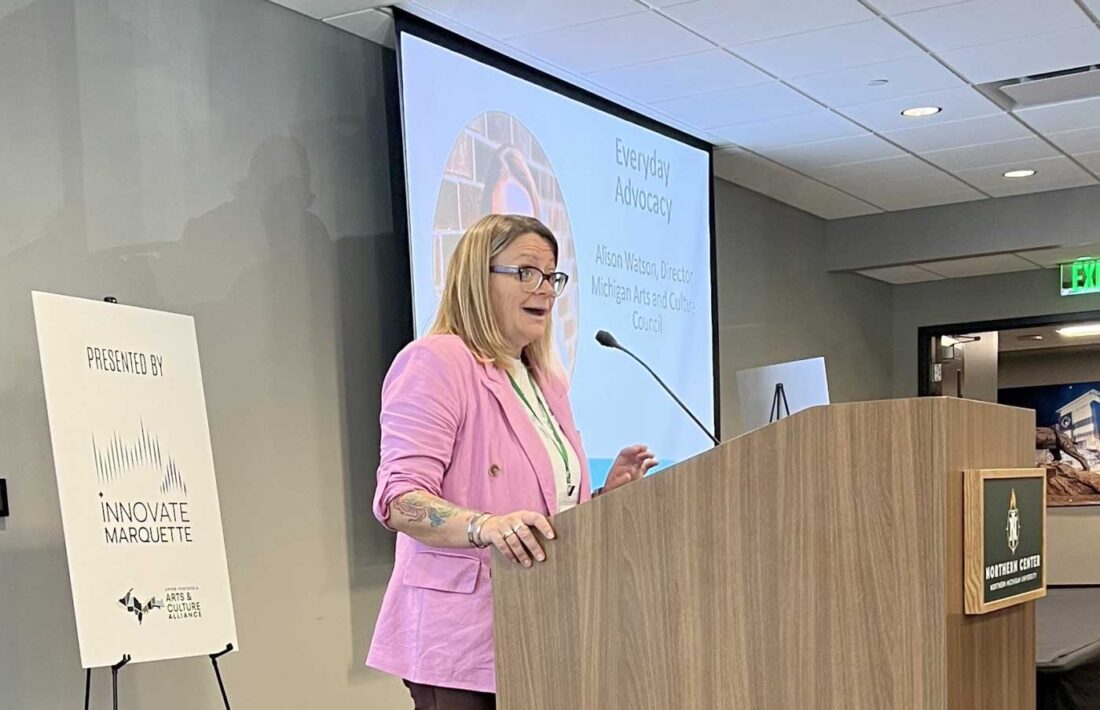
Alison Watson, executive director of Michigan Arts and Culture Council, delivered the keynote address at the annual conference of Upper Peninsula Arts and Culture Alliance.
<!–
MARQUETTE — The Upper Peninsula Arts and Culture Alliance recently held its annual conference at the Northern Center at Northern Michigan University, drawing over 60 attendees from across the region, including participants from as far as Ironwood to the west and Sault Ste. Marie and St. Ignace to the east.
This year’s theme, “Advocacy,” featured keynote speaker Alison Watson, director of the Michigan Arts and Culture Council. She shared valuable insights on the importance of advocating for the arts.
The conference addressed a range of topics relevant to the community, including theatre issues, common challenges faced by historical societies, and strategies for supporting individual artists. Discussions also focused on city master plans, collaboration among arts organizations, and the role of placemaking in community transformation.
Attendees explored fundraising and sponsorship opportunities, economic impact studies like AEP6, and the unique economic needs of the Upper Peninsula. The event concluded with an inspiring “keynote concert” by singer-songwriter Phil Lynch from Escanaba, providing a fitting close to a day of sharing ideas and experiences.
The conference was made possible through the support of several sponsors, including the Michigan Arts and Culture Council, Marquette County Community Foundation, Innovate Marquette, Historic Thunder Bay Inn, Superior Watershed Partnership, and the Marquette Rotary Club. Looking ahead, next year’s conference will be held in Escanaba on Sept. 27, and will focus on development and leveraging shared resources.
“The conference provides a chance for geographically diverse communities across the U.P. to come together and share ideas, challenges, and solutions. Arts and culture play a key role in our local economy, particularly through tourism focused on nature and history. While the U.P. is a welcoming place, residents don’t always have the opportunity to connect with one another. We often say that meeting a Yooper outside the U.P .feels like encountering family. This conference allows us to create those connections intentionally,” Philip Rice, administrative director of the Upper Peninsula Arts and Culture Alliance commented.
The Upper Peninsula Arts and Culture Alliance is a 501(c)(3) non-profit comprised of artisans and art organizations, historians and culture bearers, as well as allies in related sectors such as tourism and recreation, local and regional government and economic development.
The Alliance seeks to improve the visibility, connectivity, and sustainability of the arts and culture sector as part of the broader fabric of regional Upper Peninsula development by engaging in networking activities, providing information and resource access, and conducting research.
For more information and future events, please go to upacalliance.com.
